The Alternative Calendar: How EF Education First are going beyond the WorldTour
The American team are taking on some of the toughest off-road and ultra-endurance events this year, despite the risks involved for their WorldTour riders
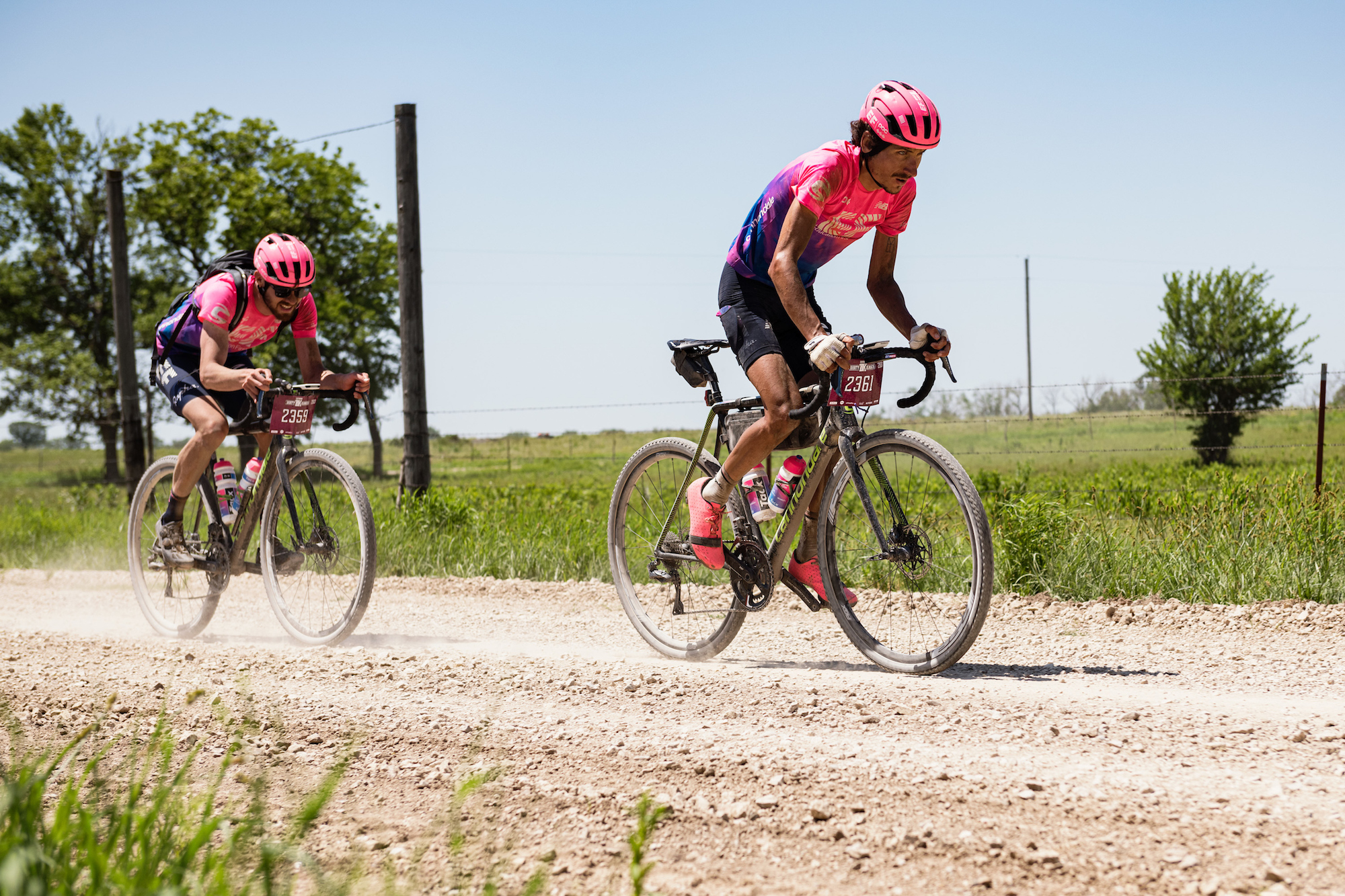
American WorldTour team EF Education First are renowned for standing out, whether it be due to their tendency to sign the more intellectual and unique characters in the peloton, such as Taylor Phinney and Joe Dombrowski, or because of their 2019 pink and blue tie-die style kit.
>>> Best gravel and adventure bikes for 2019
This sense of uniqueness was furthered when they announced last year that as part of their partnership with clothing company Rapha, they would participate in an ‘alternative calendar’, sending their riders to mass-participation events such as the Dirty Kanza gravel race, Three Peaks Cyclocross, and the Taiwan KoM challenge.
James Fairbank, central marketing manager of Rapha, explained how the brand were “trying to use this alternative calendar to generate more engaging stories around characters on the team,” and to bring cycling to new audiences.
However, as the team’s press release describes, how are the honed road racers of the team adapting their training and schedules to accommodate a calendar requiring them to “race in unconventional apparel and with a broad quiver of bicycles”?

The first race on the calendar took place in early June and gave an interesting indicator of how the pros would fare in these very unique and specific events. That event was Dirty Kanza, a 200-mile gravel race with a cult status in the US.
The field attracted a handful of WorldTour riders, with Lachlan Morton, Alex Howes and Taylor Phinney representing EF Education First, and Keil Reijnen and Peter Stetina from Trek-Segafredo. Despite the presence of these pro roadies, the race was won by Colin Strickland, an independent multi-discipline full time rider, with Stetina coming second, followed by Howes and Morton in third and fourth respectively.
The latest race content, interviews, features, reviews and expert buying guides, direct to your inbox!
Initially, it may seem surprising that an independent rider beat the pros that have all the time and all the facilities they could wish for. Admittedly, Strickland is sponsored and full-time, but surely the rigours of racing in the peloton of the WorldTour should have set the EF Education First and Trek-Segafredo riders on a sure-fire trajectory for success?
This is far from the case, says Morton, who explained that while him and his colleagues had the fitness, they no way had the specialism.
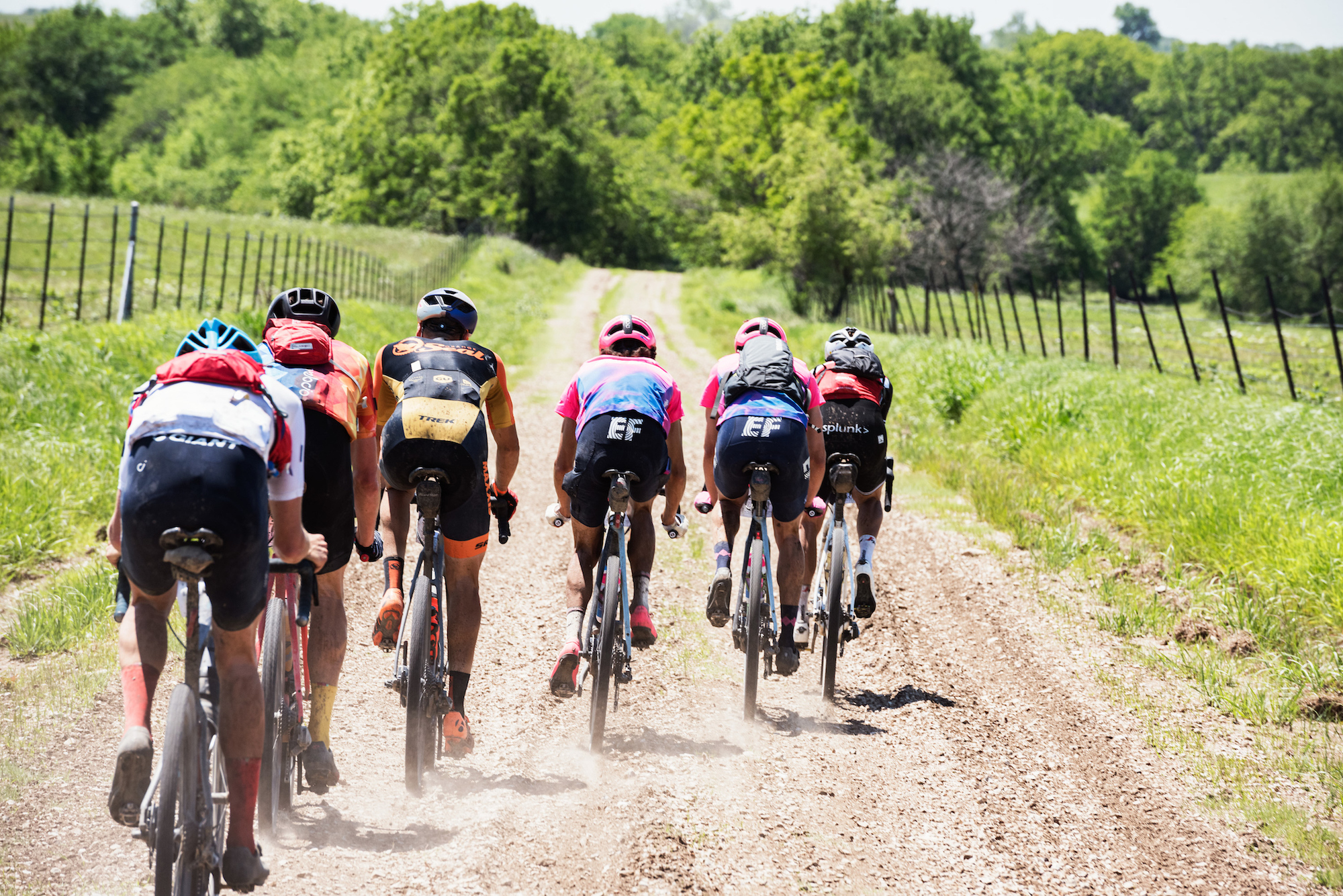
“You saw with Strickland that he was so well prepared and had a specific plan, and that it really helped him. At 10pm the night before, we were still getting tutorials on how to boot tyres and mucking about with tyre pressures. When we were riding with all these gravel specialists it definitely felt like we were riding with them, rather than they were riding with us.”
Morton, who is scheduled to participate in all of the alternative calendar, is well aware that experience in the discipline and on the particular course will be key in the events. The race where this will be the most pivotal is the Three Peaks Cyclocross, a 61km race in Yorkshire that takes riders over three huge hills, and includes 6-8km of ‘unrideable’ terrain.
“I think that Three Peaks will be the event that will be hardest for us to be competitive in,” says Morton. “It’s probably the furthest from what we do week-in-week-out on the WorldTour, in terms of both the training required and the skillset”
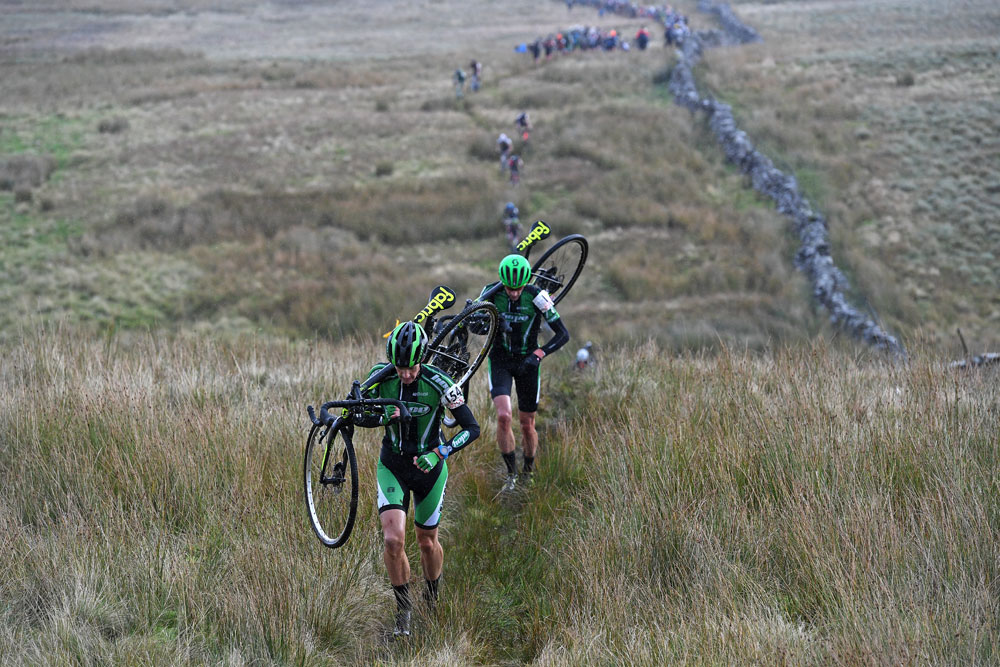
Multiple Three Peaks winner Paul Oldham agrees that dedicated ‘crossers and alumni of the event will definitely have an advantage.
“Knowing the course really helps, having the right bike set up and knowing how the descents etc. They may be the fittest there, but very few win it first time out.”
As well as being on the back foot at races in the calendar such as Dirty Kanza and Three Peaks due to the lack of specialist skills, the team also lack the time to specifically train for them.
“I’ve done over 30 days of WorldTour racing so far this year, which is pretty standard in the peloton,” says Morton. “I’m running pretty much a full road calendar, plus these other races. It’s not like I can just clear out my WorldTour schedule and go and do these other events.”
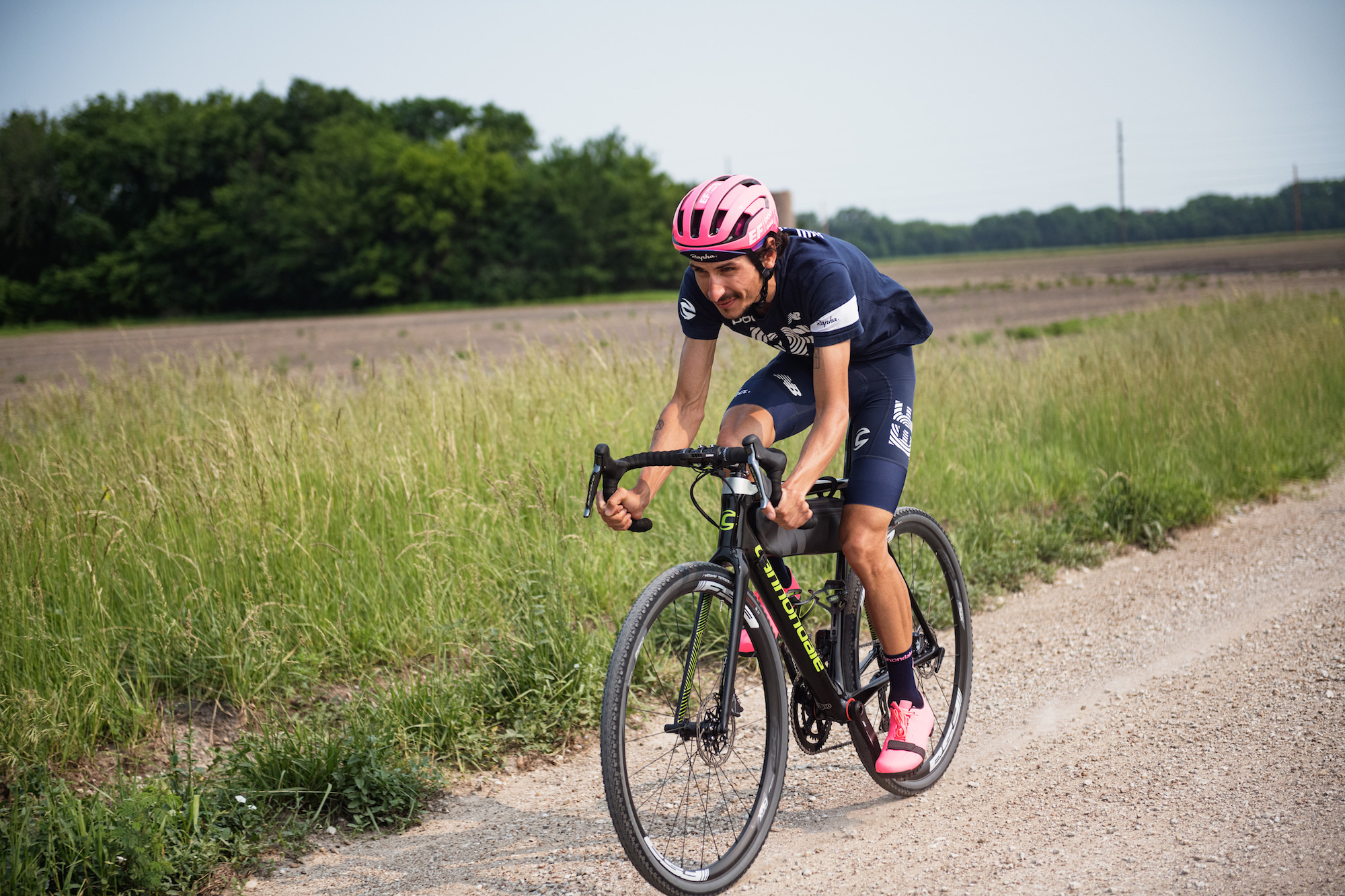
The consequence of Morton’s busy diary was that in the leadup to Kanza, while the gravel specialists were out testing their gear over specific training sessions, he was racing the Tour of California. While he had planned to do some long gravel rides in the two weeks between the two events, he was denied the opportunity by a bout of illness picked up while racing in California.
However, Morton explains how his preference for training over long days and on mixed terrain – something unlike many WorldTour riders – meant he had the basic conditioning required for the 10 hours of Dirty Kanza, and is one of the reasons why he is due to attend all the alternate events. And this tendency to train in a way quite different to many WorldTour riders was evident in the way that it was Morton who came to the fore in the final sections of the Dirty Kanza when his team-mate Howes was flagging with a relative lack of endurance.
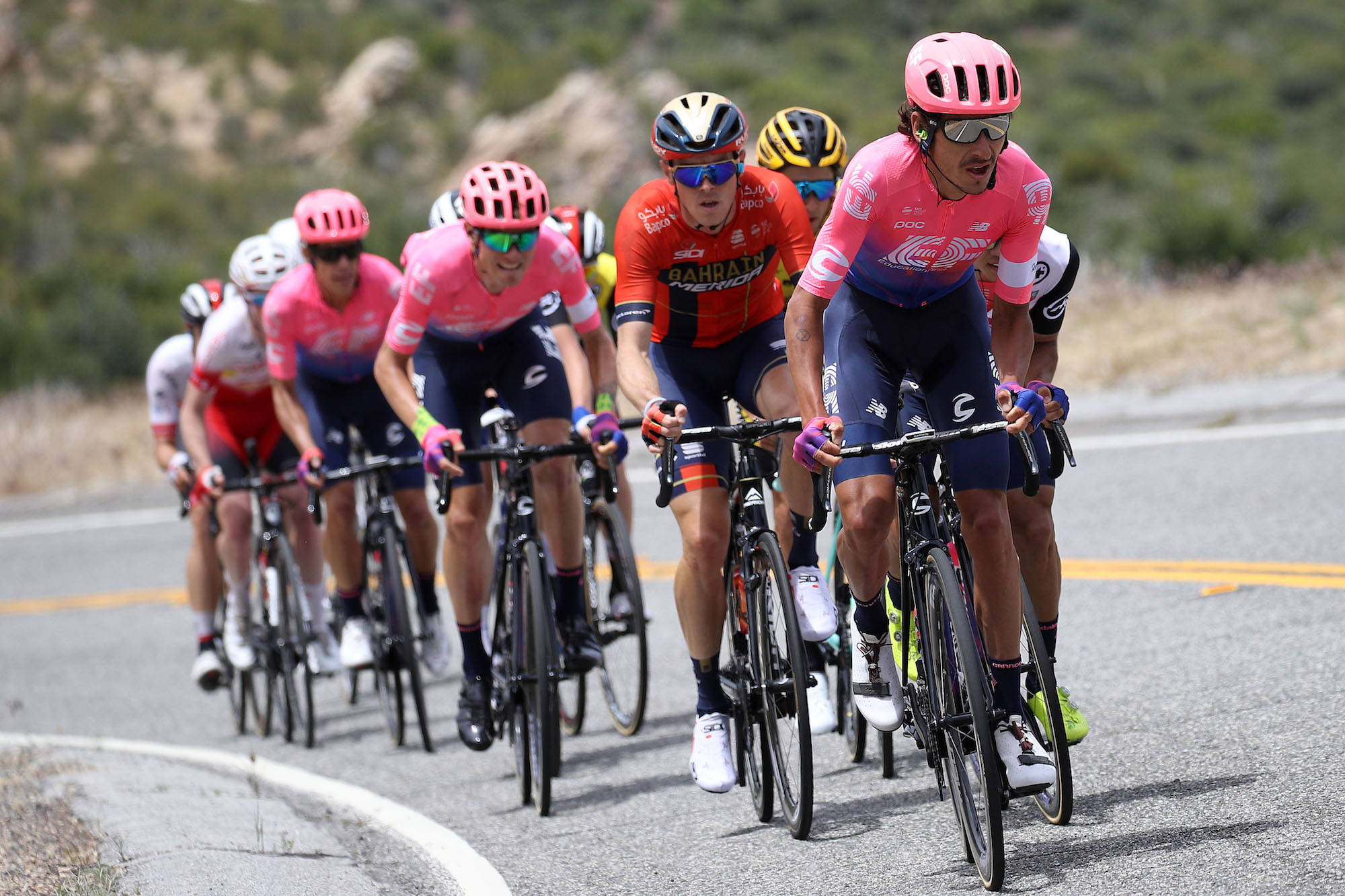
With Morton’s sense that his inexperience on the course will cause him problems at Three Peaks comes an awareness that he won’t be able to get away without some specific training for the event, in the way he managed to wing it at Kanza.
“I’ll definitely have to do some general running training, and some with a bike over my shoulder too” he says. “I’ll just have to fit it around my road training”.
Oldham agrees that the Three Peaks is an event posing a lot of challenges for a roadie.
“Training for Three Peaks isn’t even like training for normal cyclocross, there’s a lot of specific training for the event that really helps. It’s the most niche part of the sport you can imagine so you need to be prepared; it’s as far from a cyclocross race as you can get. Although you can’t train specifically on the course, I live local to it and so do a lot of efforts on similar terrain, and I know that puts me at a huge advantage.”
However, on the flipside, the Taiwan KoM Challenge, a race that centres on a 90km climb, and which is won in around three to three and a half hours, is much more suited to the physiological and technical skillset of the WorldTour.
Ex-WorldTour rider Phil Gaimon finished sixth in the event in 2017, a year in which Vincenzo Nibali took victory. Gaimon explains that for a relatively ‘straightforward’ event such as the Taiwan KoM challenge, which is ultimately a test of fitness and luck without the interplay of specialist skills and course knowledge such as Three Peaks, the highly-trained, fine-tuned engines of the WorldTour should flourish.
“The people who are most talented on the road filter up to the WorldTour and then adapt their bodies to what they need to do,” says Gaimon.
“They’re super-talented cyclists, so if you ask them to climb for 40 minutes in the WorldTour they’ll be great, if you tell them to climb for several hours at Taiwan they’re still going to be very good. There’s not much better training for any sort of road racing than the 30-hour weeks these guys regularly do at the WorldTour. Though guys specifically training for an effort like Taiwan may do better, there won’t be much in it,” he continues.
Morton agrees with Gaimon’s sentiment, saying: “Some of those really specific events like Peaks and GBDURO [a new self-supported bikepacking enduro spanning the length of the UK] we’re just going into for the experience and to get around, but I’m looking forward to actually racing Taiwan. It’s the closest physically to what we’re used to. On paper it’s the perfect race for me.”
While Morton and his team-mates aren’t planning to go into the alternative races to dominate the action, but instead to enter the spirit of the event and share the experiences of the amateurs that they toe the start line with, EF Education First are making the riders’ attendance a serious business.
Not only are the team funding the logistics of sending riders around the world to race, but risking their valuable ‘assets’ in allowing them to be there.
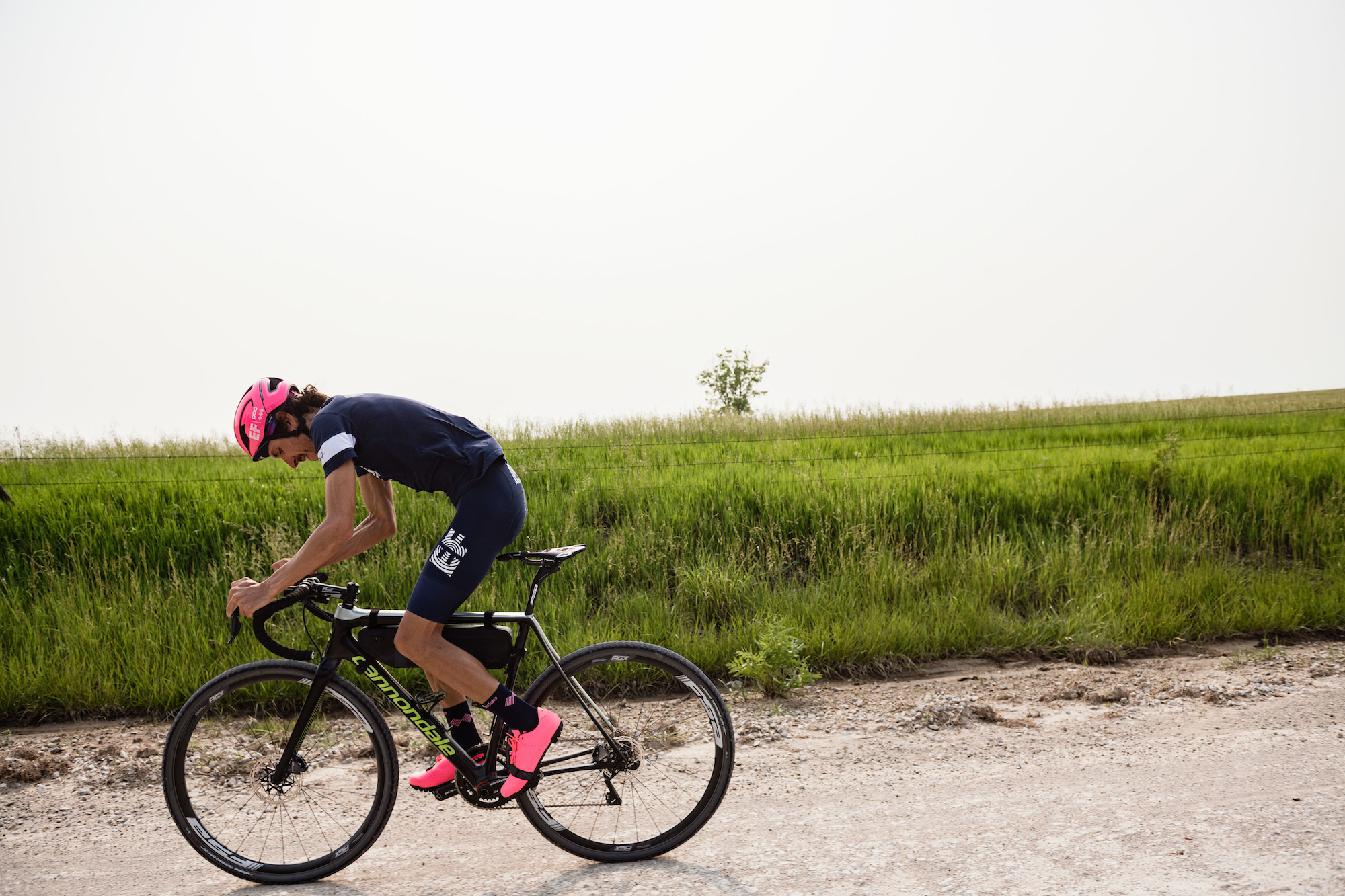
For example, Morton tells us that he will be racing at the Leadville 100 mountain bike race in Colorado on a Saturday before making an overnight journey to Utah to make start line for the prologue of the Tour of Utah on the Sunday.
As the only American WorldTour team in the peloton, the Tour of Utah is a big priority for EF Education First, and having one of their riders on the back foot with fatigue from day one is a gamble. However, as Morton explains, it’s a challenge they’re willing to take on.
“I think it’s always going to be a risk tackling these races, be it due to the distance, timing or location, but we’ve decided to take them on anyway,” he says.
“For me and I’m sure the team also, what we are trying to achieve by pushing ourselves in these races is greater than what we achieve through any WorldTour result. If that means less than ideal preparation for WorldTour events in certain instances, then so be it.”
And that attitude shows that the team’s decision to take on the calendar really is more than just a marketing push or a half-baked goodwill project.
It seems that EF-Education First, Morton, and his fellow alternative calendar racers really are looking to engage with the wider cycling community in a new way, and to remind us all that cycling isn’t just about winning, but about new experiences and the things you learn along the way.